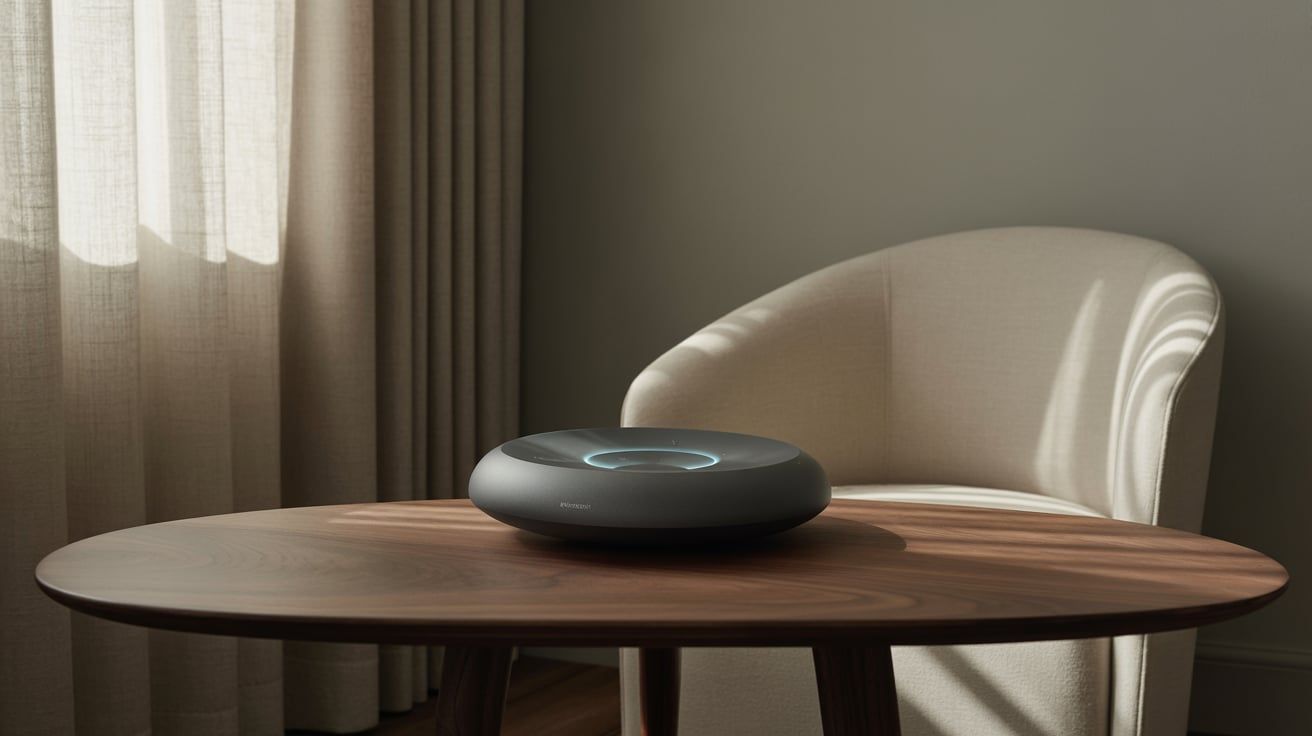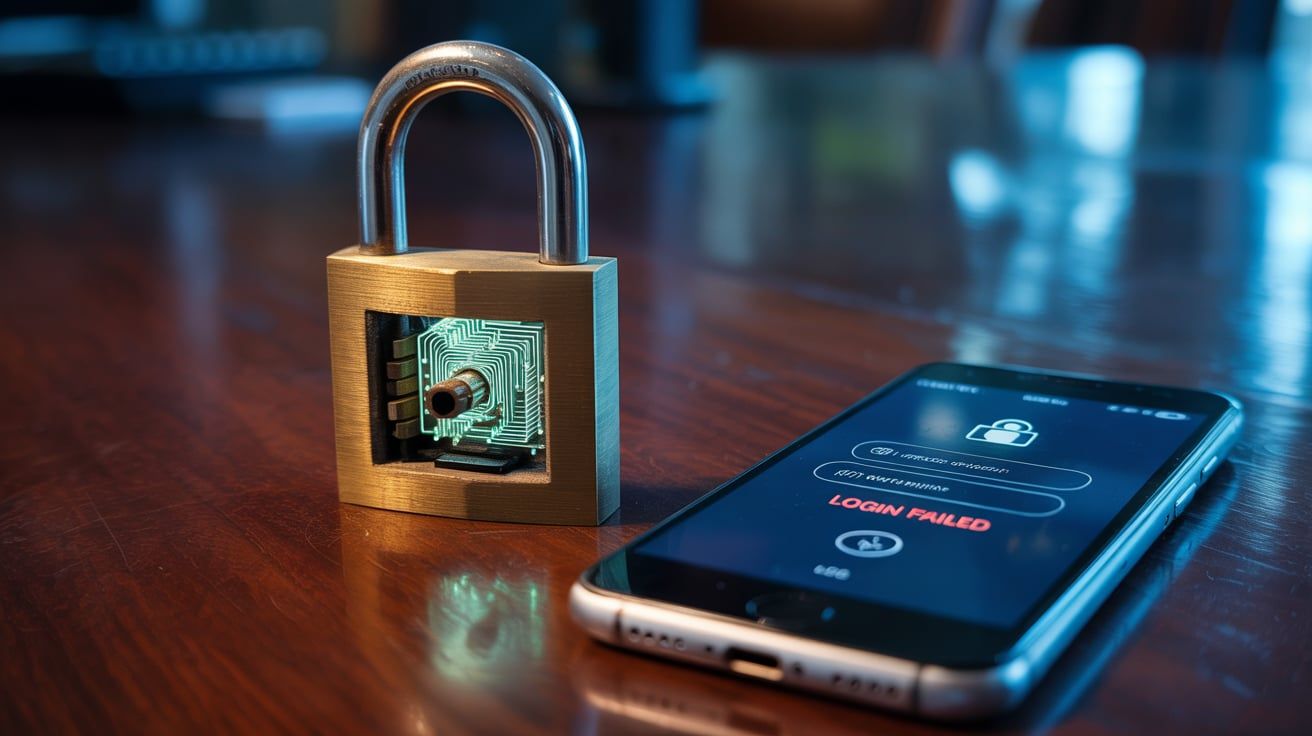
The Silent Observer in Your Living Room
Imagine this: you’re having a private conversation with a loved one in your living room, discussing sensitive personal matters. You feel safe and secure within the walls of your home. But what if I told you that your smart speaker, that seemingly innocuous device sitting on your coffee table, might be silently recording every word? It sounds like a scene from a dystopian movie, but the reality is that many smart home devices, particularly those with voice assistants, are equipped with the technology to do just that. This isn’t necessarily malicious, but it raises serious questions about privacy and data security in our increasingly connected world.
We’ve embraced the convenience of smart homes, filling our spaces with devices that promise to make our lives easier and more efficient. From smart thermostats that learn our temperature preferences to smart lighting systems that adjust to our moods, the allure of automation is undeniable. However, this convenience comes at a cost. The very features that make these devices so appealing also make them potential vectors for privacy breaches. The microphone, the camera, the data collection – all designed to enhance your experience, but also capable of gathering information you might not want shared.
Understanding the Culprit: Voice Assistants and Data Collection
At the heart of this privacy concern lies the ubiquitous voice assistant. Whether it’s Amazon’s Alexa, Google Assistant, or Apple’s Siri, these digital helpers are designed to listen for specific wake words before activating and responding to your commands. But what happens to the audio data before and after that wake word is detected? The answer is complex and often buried deep within the terms of service agreements that most of us blindly accept. In many cases, these recordings are stored, analyzed, and used to improve the performance of the voice assistant. This data can include not only your commands but also snippets of conversations that occur in the vicinity of the device.
The problem isn’t just the storage of these recordings; it’s also the potential for them to be accessed by third parties. While companies like Amazon and Google claim to have strict security measures in place, data breaches are becoming increasingly common. A single vulnerability could expose your private conversations to hackers, advertisers, or even government agencies. Furthermore, the algorithms used to analyze this data can be surprisingly accurate at identifying individuals, inferring their interests, and even predicting their behavior. This level of detail can be incredibly valuable to advertisers, who can use it to target you with personalized ads based on your conversations and habits.
The Illusion of Control: Privacy Settings and Their Limitations
Many smart home device manufacturers offer privacy settings that allow you to control the amount of data collected and stored. You can often delete your voice recordings, disable the microphone, or opt out of data sharing programs. However, these settings are often buried deep within the device’s settings menu, and the language used to describe them can be confusing or misleading. It’s easy to assume that you’re protecting your privacy when, in reality, you’re only limiting the amount of data that’s explicitly associated with your account.
Even if you diligently adjust your privacy settings, there’s no guarantee that your data is completely secure. Some devices may continue to collect data even when the microphone is supposedly disabled. Others may share data with third-party partners without your explicit consent. The reality is that the privacy landscape for smart home devices is constantly evolving, and it can be difficult to stay ahead of the curve. We need to be proactive in understanding the limitations of these privacy settings and taking additional steps to protect our personal information.
Beyond Voice: Other Smart Home Devices That Collect Data
While voice assistants are the most obvious culprits, they’re not the only smart home devices that collect data. Smart TVs, for example, can track your viewing habits and share that information with advertisers. Smart thermostats can monitor your energy usage and infer your daily routines. Even smart light bulbs can collect data about your occupancy patterns. The sheer volume of data generated by these devices is staggering, and it’s often difficult to understand how it’s being used.
Consider smart doorbells with built-in cameras. These devices are designed to enhance your security, but they also record video and audio of everything that happens on your doorstep. This data can be stored in the cloud and accessed remotely, raising concerns about who has access to this footage and how it’s being used. While these devices can be valuable for deterring crime, they also create a surveillance network that extends beyond your property lines. The innovation in these devices is undeniable, but we must consider the ethical implications of constant surveillance.
The Security Risks: Hacking and Data Breaches
The more connected devices you have in your home, the larger the attack surface for hackers. A single vulnerability in one device can be exploited to gain access to your entire network. Once inside, hackers can steal your personal data, eavesdrop on your conversations, or even control your devices remotely. The potential consequences are significant, ranging from identity theft to physical harm.
We’ve seen numerous examples of smart home devices being hacked in recent years. In some cases, hackers have used smart cameras to spy on families. In others, they’ve taken control of smart thermostats to disrupt heating and cooling systems. These incidents highlight the importance of securing your smart home network with strong passwords, regular software updates, and a robust firewall. It’s also crucial to be aware of the potential risks and to take steps to mitigate them.
Protecting Your Privacy: Practical Steps You Can Take
While the privacy risks associated with smart home devices are real, there are steps you can take to protect yourself. First, be mindful of the devices you bring into your home. Do your research and choose devices from reputable manufacturers with a strong track record of security and privacy. Read the terms of service agreements carefully and understand what data is being collected and how it’s being used.
Second, take advantage of the privacy settings offered by your devices. Disable the microphone when you’re not using it, delete your voice recordings regularly, and opt out of data sharing programs. Use strong passwords and enable two-factor authentication whenever possible. Keep your devices’ software up to date to patch any security vulnerabilities. Consider using a virtual private network (VPN) to encrypt your internet traffic and protect your privacy. These simple steps can significantly reduce your risk of being spied on.
The Role of Regulation: Holding Companies Accountable
Ultimately, protecting our privacy in the age of smart homes requires more than just individual action. We need stronger regulations to hold companies accountable for the data they collect and how they use it. Governments need to establish clear guidelines for data privacy and security, and they need to enforce those guidelines effectively. This includes requiring companies to be transparent about their data collection practices, to obtain explicit consent before collecting sensitive data, and to implement robust security measures to protect that data from breaches.
The digital landscape is constantly evolving, and our laws need to keep pace. We need to ensure that individuals have the right to access, correct, and delete their personal data. We also need to create mechanisms for holding companies liable for privacy violations. Only through a combination of individual action and government regulation can we create a smart home environment that is both convenient and secure. The future of technology depends on our ability to balance innovation with privacy.
The Future of Smart Homes: Balancing Convenience and Privacy
The smart home is here to stay. The convenience and efficiency it offers are simply too compelling to ignore. However, we must be vigilant about protecting our privacy in this increasingly connected world. By understanding the risks, taking practical steps to mitigate them, and advocating for stronger regulations, we can create a smart home environment that is both convenient and secure. The key is to be informed, proactive, and demanding of the companies that create these devices.
The future of smart homes depends on our ability to strike a balance between convenience and privacy. We need to demand transparency from manufacturers, advocate for stronger regulations, and take personal responsibility for protecting our data. Only then can we truly enjoy the benefits of smart home technology without sacrificing our fundamental right to privacy. Let’s work together to shape a future where technology empowers us, rather than spies on us.
Take Control of Your Digital Privacy Today
The information age has brought incredible advancements, but it’s also brought new challenges to our personal privacy. Don’t let your smart home become a source of anxiety. Take control of your digital footprint today. Start by reviewing the privacy settings on all your smart devices. Educate yourself about the data collection practices of the companies you trust. And most importantly, be an advocate for stronger privacy regulations. Your voice matters, and together, we can create a future where technology serves humanity, not the other way around.
Ready to take the next step? Share this article with your friends and family to raise awareness about the privacy risks associated with smart home devices. Visit our website for more tips and resources on protecting your digital privacy. And consider supporting organizations that are fighting for stronger privacy laws. Together, we can make a difference. The time to act is now.



